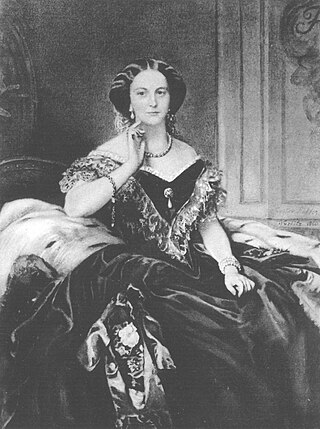See also
Name list
This page or section lists people that share the same given name. If an internal link led you here, you may wish to change that link to point directly to the intended article.
Aribert (Italian : Ariberto) is a Germanic given name, from hari ("host") and beraht ("bright"). Notable people with the given name include:
Sigismund is a German proper name, meaning "protection through victory", from Old High German sigu "victory" + munt "hand, protection". Tacitus latinises it Segimundus. There appears to be an older form of the High German word "Sieg" (victory): sigis, obviously Gothic and an inferred Germanic form, and there is a younger form: sigi, which is Old Saxon or Old High German sigu. A 5th century Prince of Burgundy was known both as Sigismund and Sigimund . Its Hungarian equivalent is Zsigmond.

Year 1037 (MXXXVII) was a common year starting on Saturday of the Julian calendar.
Arnulf is a masculine German given name. It is composed of the Germanic elements arn "eagle" and ulf "wolf". The -ulf, -olf suffix was an extremely frequent element in Germanic onomastics and from an early time was perceived as a mere suffix forming given names. Similarly, the suffix -wald, -ald, -old, originally from wald "rule, power" underwent semantic weakening. Therefore, the name Arnulf and Arnold were often conflated in early medieval records, as is the case with bishop Arnulf of Metz, especially as the final consonant came to be dropped (Arnoul).
Halle may refer to:
Schönberg may refer to:
Schuster is a common family name in German. It is also common among Ashkenazi-Jews, sometimes spelled Shuster. Other spelling variants of the name include Šuster, Šustr, Šuštar, and Chouster.
Rudolph or Rudolf may refer to:
Rade may refer to:

Aribert was the archbishop of Milan from 1018, a quarrelsome warrior-bishop in an age in which such figures were not uncommon.

Princess Antoinette of Saxe-Altenburg was a princess of Saxe-Altenburg by birth and Duchess of Anhalt by marriage.

Prince Aribert Joseph Alexander of Anhalt was regent of Anhalt from September to November 1918 on behalf of his underage nephew Joachim Ernst, Duke of Anhalt. As regent, following the German revolution, he abdicated in the name of his nephew on 12 November 1918, thus ending the rule of the House of Ascania in Anhalt.

Eduard Georg Wilhelm Maximilian was a German prince of the House of Ascania and the penultimate ruler of the Duchy of Anhalt from April to September 1918.
Guido da Velate was the Archbishop of Milan from 1045 until his death, though he had simoniacally abdicated in 1067. He had been chosen as successor to Aribert by the people in opposition to the choice of the noblesse and confirmed as archbishop by the Emperor Henry III.
Visconti is a surname which may refer to:
George Aribert of Anhalt-Dessau, was a German prince of the House of Ascania and (titular) ruler of the principality of Anhalt-Dessau.
Siegfried is a German-language male given name, composed from the Germanic elements sig "victory" and frithu "protection, peace". The German name has the Old Norse cognate Sigfriðr, Sigfrøðr, which gives rise to Swedish Sigfrid, Danish/Norwegian Sigfred. In Norway, Sigfrid is given as a feminine name.
Paulin is a French masculine given name and surname.
Dorothea, also spelt Dorothee (German), Dorothée (French), and Dorotea, is a female given name from Greek Δωροθέα (Dōrothéa) meaning "god's gift". In English it is more commonly spelt Dorothy.
Heribert is a Germanic given name, derived from hari ("host") and beraht ("bright"). See also Herbert, another given name with the same roots.

The House Order of Albert the Bear was founded in 1836 as a joint House Order by three dukes of Anhalt from separate branches of the family: Henry, Duke of Anhalt-Köthen, Leopold IV, Duke of Anhalt-Dessau, and Alexander Karl, Duke of Anhalt-Bernburg.